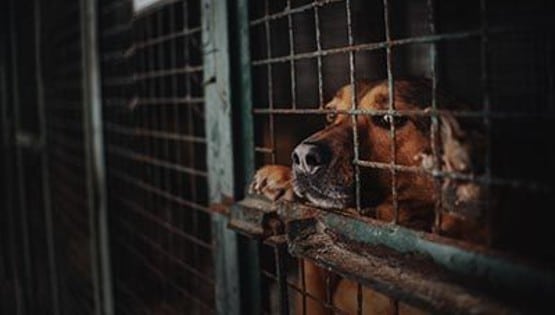
Americans are not strangers to animal abuse.
An analysis by Veterinarians.org ranks animal cruelty offenses in the United States from 2012 to 2021.
The leading state is Texas with nearly 7,000 offenses in the time period analyzed, which is six times higher than the national average of 1,146. Texas’s offenses account for 15 percent of all animal cruelty offenses reported in the nation during the time.
Delaware, Colorado, Virginia and Tennessee round out the top 5, where offense numbers are more than double the national average during the analyzed time period. Together, the number of animal cruelty offenses in these five states account for more than half of the nationwide total between 2012 and 2021.
U.S. law enforcement agencies reported 16,573 animal cruelty offenses in 2021. Texas tops the list for the highest number of offenses in the nation with 2,952 reported in 2021, and accounts for 17 percent of all nationwide offenses. Texas’s offenses are more than double the amount of offenses for the next leading state on the list.
Texas, along with Delaware, Virginia and Georgia, are the only states on the list where animal cruelty offenses exceeded 1,000 within the analyzed year. All states listed see offense numbers are higher than the national average of 324.
Delaware has a significant lead in terms of the incident rate of animal cruelty offenses or the number of offenses per 100,000 residents. The state sees 129 animal cruelty offenses for every 100,000. The incident rate is 16 times higher than the national average of 8.
North Dakota, Colorado, Montana and Virginia round out the top 5 in this list. All but two of the states on the list have an incident rate higher than the national average.
A 2009 study from the National Center for Biotechnology Information revealed of 43,093 interviews that “men, African-Americans, Native-Americans/Asians, native-born Americans, persons with lower levels of income and education, and adults living in the western region of the U.S. reported comparatively high levels of cruelty to animals, whereas Hispanics reported comparatively low levels of such behavior.”
Associations were also found in the study between animal cruelty and assessed antisocial behaviors, lifetime alcohol use disorders, conduct disorder, antisocial, obsessive-compulsive, and histrionic personality disorders, pathological gambling, and family history of antisocial behavior.
Among adults charged with animal cruelty, men outnumber women 4 to 1.
On the other hand, according to ResearchGate, approximately 75 percent of animal rights activists are women.










